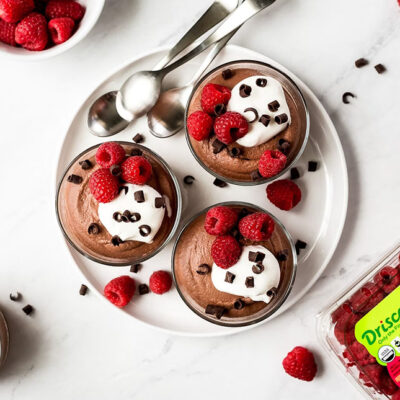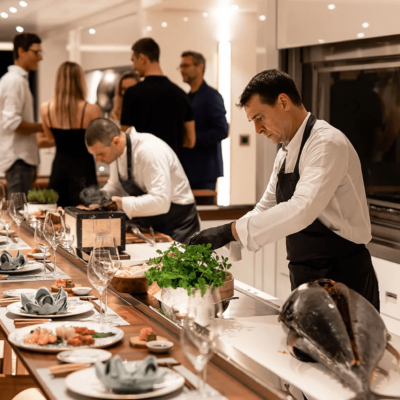Food safety tips for yacht chefs
Being a chef on a yacht is an exciting adventure that combines a passion for cooking with the thrill of life at sea. However, preparing meals on board presents unique challenges, especially when it comes to food safety. Proper food management, contamination prevention, and optimizing limited space are just some of the crucial considerations every chef must keep in mind to ensure that every meal served on board is safe as well as delicious.
One of the first things to consider is the proper storage of food. Keeping food at the right temperature is essential to prevent the growth of harmful bacteria, a particularly challenging task on a yacht where environmental conditions can vary significantly. The refrigerator should be kept at a temperature below 4°C, while the freezer should stay at -18°C or less. Using thermometers to constantly monitor these temperatures can make a big difference. It is also important to organize the refrigerator to avoid cross-contamination. For example, raw meat, poultry, and fish should be stored on the lower shelves to prevent their juices from contaminating other foods. Using airtight containers can help keep food fresh longer and prevent contamination from odors or other substances. Learn more about optimal food storage with Oceano Mare.
Personal hygiene for the chef is another crucial aspect of food safety. Washing hands thoroughly and frequently is one of the most effective measures to prevent food contamination. It is important to do this especially after handling raw foods, using the bathroom, or handling garbage. Using warm water and soap, scrubbing hands for at least 20 seconds, is the best practice. Wearing clean and appropriate clothing, such as aprons and caps, can prevent hair or other contaminants from falling into the food. Nail care is also essential: keeping them short and clean and avoiding the use of nail polish or jewelry can reduce the risks of contamination.
Preventing cross-contamination is perhaps one of the most complex but vital challenges to address. Using separate cutting surfaces for raw meat, fish, poultry, and vegetables is a good practice to avoid transferring harmful bacteria from one food to another. If space on board is limited and does not allow for separate surfaces, make sure to thoroughly wash cutting surfaces with warm water and soap between uses. Using different utensils for raw and cooked foods can further reduce contamination risks. Washing hands between handling different types of food is another fundamental practice to maintain food safety.
Properly managing leftovers is another important aspect of food safety on board. Rapidly cooling leftovers is essential to avoid bacterial proliferation. Dividing large quantities of food into smaller containers can speed up the cooling process. Once cooled, leftovers should be stored in airtight containers and labeled with the preparation date, so they can be used within 3-4 days or frozen for later use. When reheating leftovers, it is important to ensure they reach an internal temperature of at least 74°C to kill any bacteria. Discover the best leftover management techniques with Oceano Mare.
Finally, managing food supplies is crucial. Purchasing high-quality food from reliable suppliers who comply with hygiene standards can make a big difference. It is important to inspect supplies upon delivery to ensure they are well-preserved and at the right temperature. Planning purchases based on the number of guests and the duration of the trip helps avoid waste and ensure food freshness. Keeping a small emergency stock of long-lasting food can be useful in unforeseen situations. Oceano Mare offers a selection of high-quality food supplies to always ensure the best on board.
Maintaining high standards of food safety on a yacht is essential to ensure the well-being and satisfaction of guests. Food safety requires attention to detail, continuous training, and strict application of good hygiene practices.
With the right attention and care, every culinary experience on board can be a moment of pure pleasure, without worries. Remember, the health and safety of guests are always the top priority.


